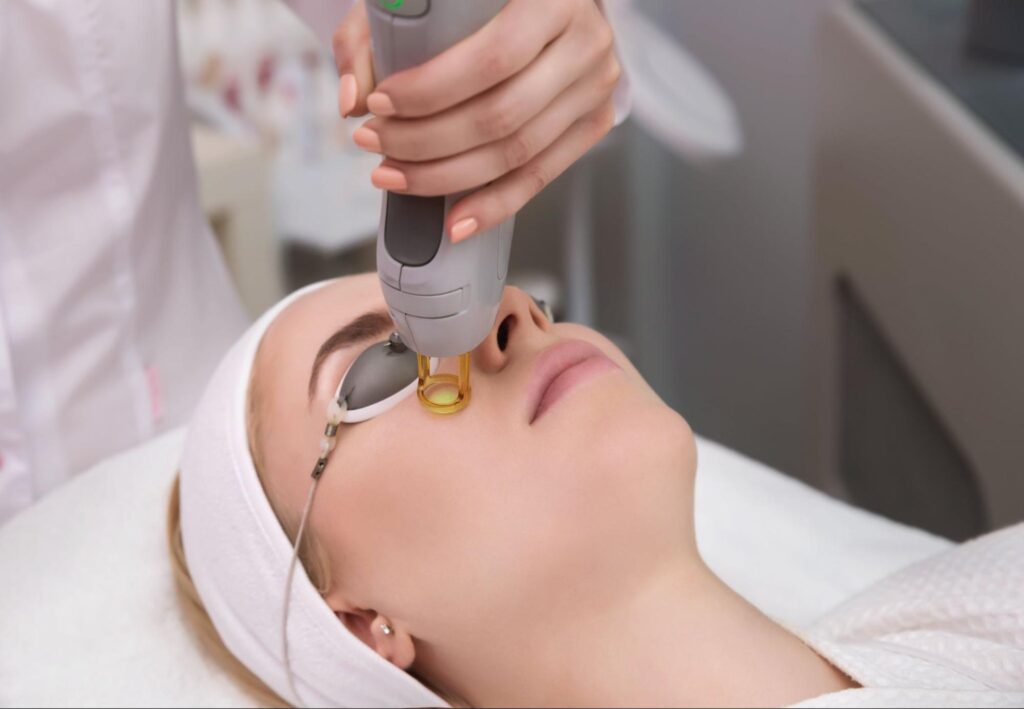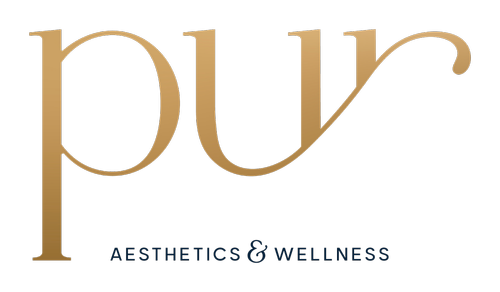Laser skin rejuvenation is a popular and effective solution for various skin concerns, from reducing wrinkles to treating acne scars. But the magic of laser treatments doesn’t stop when you leave the clinic.
Your post-treatment care routine is crucial in ensuring long-lasting, beautiful results. In fact, how you take care of your skin after laser treatments can make all the difference between glowing, refreshed skin and complications like irritation or prolonged redness.
Whether you are recovering from skin resurfacing, fractional laser, or photorejuvenation, this guide will walk you through what to do and what to avoid to get the most out of your laser treatment.
Read here to find out the essential dos and don’ts that will make your post-laser care routine a breeze.
What Are Laser Treatments?
Laser treatments use focused beams of light to target specific areas of the skin. These beams either remove or alter the skin’s surface to treat various issues such as fine lines, wrinkles, acne scars, pigmentation, and even unwanted hair.
Lasers work by stimulating collagen production, encouraging skin rejuvenation, or eliminating skin imperfections. Depending on your skin concern, our provider will choose between ablative (which removes outer layers of the skin) and non-ablative (which works beneath the skin without removing layers) lasers.
These laser treatments target different skin layers, making them highly effective for improving texture and tone.
The Many Uses of Laser Treatments
Laser technology is incredibly versatile, and its uses go beyond basic wrinkle reduction. Here are some common skin issues laser treatments can address:
- Skin Resurfacing. Laser skin resurfacing can remove the outer layers of damaged skin to reveal fresh, youthful skin underneath. This treatment can soften fine lines and wrinkles, improve skin tone, and reduce pore size.
- Fractional Laser. This treatment involves creating micro-injuries to the skin to stimulate collagen production. Fractional lasers are often used to treat acne scars, pigmentation, and sun damage without the downtime of more intense treatments.
- Ablative Laser. Ablative lasers remove the top layers of the skin, which makes them ideal for treating deeper wrinkles, sun-damaged skin, and severe acne scars. While highly effective, these treatments often require longer recovery times.
- Non-Ablative Laser. Non-ablative lasers don’t remove skin layers but rather work underneath the surface to encourage collagen stimulation and skin tightening. These lasers are great for those who want minimal downtime.
- Photorejuvenation. This treatment uses Intense Pulsed Light (IPL) to target pigmentation issues, such as sunspots and age spots, by breaking down the pigment beneath the skin.
- Acne Scar Treatment. Whether you are dealing with post-inflammatory pigmentation or deep, pitted scars, laser treatments can improve texture and reduce discoloration by resurfacing the skin.
Now that you have a solid understanding of what laser treatments can do, let’s talk about what happens afterward—and how to ensure your skin recovers beautifully.
Do’s and Don’ts of Laser Treatment Aftercare
Laser treatments leave your skin more sensitive than usual, which makes aftercare absolutely essential. Whether you’ve had an ablative laser, fractional laser, or a more gentle photorejuvenation session, the following aftercare tips will help you maximize your results and avoid complications.
Do’s of Laser Treatment Aftercare
- Stay Hydrated. Hydration is crucial for the healing process after laser treatments. Drink plenty of water to help your skin recover from within. You can also apply gentle, hydrating products like hyaluronic acid serums to boost your skin’s moisture levels.
- Use Gentle, Fragrance-Free Products. Your skin will be more sensitive than usual after a laser treatment, so avoid harsh chemicals, fragrances, and active ingredients like retinoids and acids. Opt for products labeled “for sensitive skin,” and focus on healing and calming ingredients like aloe vera or ceramides.
- Wear Sunscreen Daily. One of the most important steps in aftercare is sunscreen. Since your skin will be more sensitive to UV rays, wearing broad-spectrum sunscreen (SPF 30 or higher) is essential. Even on cloudy days or indoors, UV exposure can harm your skin’s healing process and potentially lead to pigmentation issues.
- Keep Your Skin Cool. After laser treatments, it’s common to experience some redness, swelling, or heat on the skin. Use cool compresses or ice packs (wrapped in a cloth) to calm the skin and reduce inflammation. This can also help with discomfort immediately following the procedure.
- Follow Your Provider’s Instructions. Your skin specialist will give you specific instructions based on the type of laser treatment you received. Whether it’s how often to apply healing creams or how long to avoid sun exposure, make sure you stick to their guidelines.
- Use a High-Quality Moisturizer. Keeping your skin moisturized is key to supporting the healing process and maintaining your laser treatment results. Look for rich, non-irritating moisturizers designed for post-procedure skin. Ceramide-based products are an excellent option for restoring the skin’s natural barrier.
Don’ts of Laser Treatment Aftercare
- Don’t Expose Your Skin to Direct Sunlight. Sun exposure is one of the biggest post-laser risks. Avoid direct sunlight for at least a week after your treatment, and when you do go outside, apply sunscreen liberally. Hats and sunglasses can provide extra protection for your sensitive skin.
- Avoid Hot Showers and Saunas. After a laser treatment, it’s crucial to keep your skin cool. Avoid hot showers, baths, saunas, and any activity that might raise your body temperature, as heat can irritate the treated area and slow down the healing process.
- Skip Harsh Exfoliation. Laser treatments often act as an exfoliant by removing damaged skin layers. After your session, your skin will be too sensitive for additional scrubbing or exfoliating products. Let your skin heal on its own, and only resume exfoliating after your provider gives the green light—usually about two weeks post-treatment.
- Don’t Pick at Your Skin. Some laser treatments, particularly ablative lasers, may cause peeling as your skin heals. As tempting as it may be, avoid picking at or peeling away the skin. Doing so can cause scarring or pigmentation issues.
- Avoid Heavy Makeup for 24 to 48 Hours. It is essential to let your skin breathe after a laser treatment. Avoid heavy makeup and foundation for at least 24 to 48 hours post-treatment, as applying products too soon can clog your pores and interfere with the healing process.
- Don’t Exercise Too Soon. While it is great to stay active, vigorous exercise can raise your body temperature and lead to sweating, which may irritate the treated area. Avoid high-intensity workouts for a few days after your procedure, especially if the treated area is on your face or neck.
- Skip Alcohol and Caffeine. Alcohol and caffeine can dehydrate your skin and dilate blood vessels, which may worsen post-treatment redness and irritation. It is best to avoid both for a few days after your session to keep your skin calm and hydrated.

Effective Aftercare for Glowing Results
Whether you’ve chosen laser resurfacing, fractional laser, or acne scar treatment, the aftercare process plays a vital role in ensuring you get the best possible results. By following these do’s and don’ts, you’ll not only speed up the healing process but also protect your skin from potential complications.
Remember, taking the time to care for your skin post-treatment is just as important as the treatment itself. At Pur Aesthetics and Wellness in Granger, IN, we are here to guide you through every step of your skin rejuvenation journey.
Let us help you achieve radiant, smooth skin with the latest laser technologies and expert care. Call us now to schedule your appointment today!

